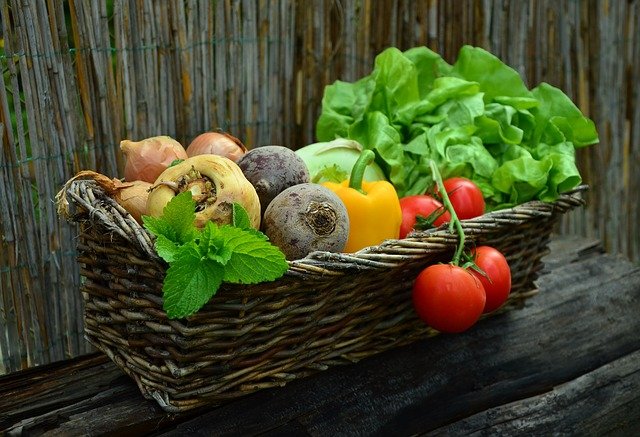You don’t have to look far to find reasons to eat organic, from better taste to a myriad of health benefits. However, figuring out what to buy and where to buy it can be difficult hurdles to overcome on your path to a healthy nutrition plan. This guide will help you shop local and make the most of your purchases.
The Benefits of Eating Organic
Curious about the benefits of fresh produce and other organic fare? The improved taste of these products is often enough of a perk in and of itself. Many people find that organic fruits are sweeter, vegetables are richer, and grass-fed, hormone-free meats taste more authentic. Tastes can vary from person to person, so carefully consider the difference in flavor as you shop.
The benefits of a natural diet go far beyond taste alone. Organic foods are often rich in vitamins and minerals that are lacking in chemically treated products. For instance, organic milk has more antioxidants, omega-3 fatty acids, and vitamins compared to non-organic milk. Some expected advantages of organic foods include a boost in the immune system and reduced risk of chronic conditions, heart disease and cancer.
While the potential health perks of eating organic are still debated, their impact on the environment is clear. By reducing pesticides, organically grown produce helps prevent the extinction of necessary insects like honey bees. Another benefit of fresh produce is that grass-fed and cage-free methods of raising livestock are considered more humane and less harmful to animals.
Where to Buy
Finding organic, affordable groceries can seem like an impossible task, but if you know where to look, this is far easier than it seems. Aside from the limited natural section at your local grocery store, there is a wider selection of healthy options. In the Research Triangle, shoppers can purchase a variety of organic food at reasonable prices. Consider shopping for your groceries at the following organic food suppliers:
Farmers’ Markets
Most farmers’ markets offer locally grown produce or responsibly raised animal products, allowing you to purchase your food with an eye towards its origins. Organic food suppliers include the State Farmers Market, Durham Farmers Market, or Chapel Hill Farmers Market. You’ll have the chance to purchase organic dried goods, fruits, vegetables, and more at affordable prices.
Co-Ops
Co-op markets are designed to cater to local communities, and as a result, they provide local, natural groceries and products for their customers. Sometimes this type of market will exist as a physical location, such as the Durham Co-Op Market, while other times customers will have the opportunity to purchase a “membership” to a local farm for a share of their produce.
Alternative Chains
If you’re looking for a place where you can buy all of your necessities in addition to organic groceries, you can try chain grocery stores like Trader Joe’s and Whole Foods. In addition to a wide selection of organic and natural foods, these markets also offer toiletries and home goods, so you can get your shopping done in one stop.
What to Buy
Now that you have an idea where to find organic food suppliers, the next step is identifying which foods to buy for your healthy nutrition plan. In some instances, buying organic is unnecessary—and in others, it can be vital. Here’s a shopping guide for those looking to shop natural:
Fruits & Vegetables
Some produce is particularly susceptible to pesticides and can contain residues of these harmful chemicals. For others that have thicker skins, it may not be necessary to purchase the organic versions. Here are products you should buy organic:
- Apples
- Peaches
- Nectarines
- Strawberries
- Grapes
- Celery
- Spinach
- Sweet Bell Peppers
- Cucumbers
- Cherry Tomatoes
- Snap Peas
- Potatoes
On the other hand, these foods do not need to be organic:
- Asparagus
- Avocado
- Cantaloupe
- Carrots
- Cauliflower
- Eggplant
- Grapefruit
- Kiwi
- Onion
- Mango
- Mushroom
- Papaya
- Pineapple
- Sweet Corn
- Watermelon
Meats & Animal Byproducts
Grass-fed meat has less saturated fat and fewer calories, not to mention less of an impact on animal life. Additionally, organic eggs and cheese often taste better than their counterparts and are usually cruelty-free. If these factors are important to you, then buying organic animal byproducts can make a big difference.
Dry Goods
In many instances, buying organic dry goods doesn’t yield the same benefit of fresh produce. Taste is a matter of opinion, but one of the largest factors in this consideration is price. Organic dry goods can be more expensive, but if you’re able to buy them in bulk from a co-op or market, you’ll increase your overall savings.
Buying organic is an important step, both for your health and for your impact on the environment. If you’re ready to switch to an all-natural diet, investigate local organic food suppliers near you and plan your shopping list accordingly. The end result could be a healthier diet and a happier you, just in time for the New Year.


